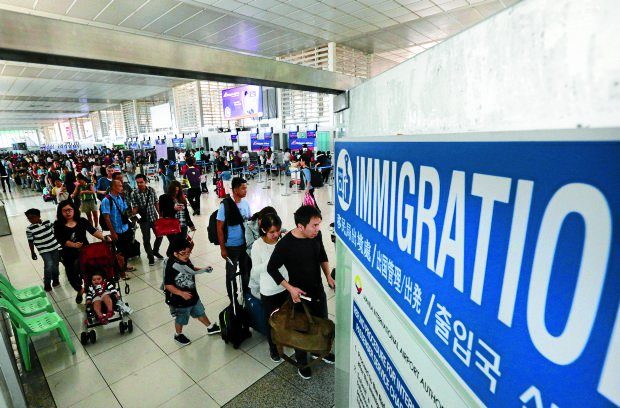MANILA, Philippines — The Bureau of Immigration (BI) on Tuesday suspended the issuance of visas upon arrival (VUA) to Chinese nationals in the wake of the novel coronavirus or 2019-nCov threat.
In a statement, BI Commissioner Jaime Morente said the move follows the temporary lockdown of several cities in China, as well as the temporary shutdown of public transport services in several areas in a bid to contain the spread of the virus.
According to the BI, the suspension of the issuance of visas upon arrival, is a “proactive measure to slow down travel, and possibly help prevent the entry of the 2019-nCov” into the country.
Under Department Circular 041 issued by then Justice Secretary Vitaliano Aguirre II, landed visas or VUA are issued to nationals from the People’s Republic of China (PROC). The VUA allows a Chinese national to stay in the Philippines for 30 days and may apply for an extension of up to a maximum period of six months.
“The Civil Aeronautics Board has already suspended direct flights from Wuhan province,” Morente said. “We are now temporarily suspending the issuance of VUA for Chinese nationals to slow down the influx of group tours.”
The novel coronavirus has claimed the lives of 106 people and infected at least 1,300.
China previously said that transportation was shut down in Wuhan, the epicenter of the outbreak, as well as 12 other cities in central China’s Hubei province.
Despite this, however, Morente clarified that there is no order to bar Chinese nationals from entering the country.
“It is the Bureau of Quarantine (BOQ) who conducts monitoring of arriving passengers to see if they are manifesting symptoms of the coronavirus. They have put up measures in place to strictly check arriving passengers,” he said, clarifying about the BI’s role in inspecting suspected carriers of the virus.
“They (BOQ) have been very active in giving information to frontline port personnel on how to prevent the transmission of the virus, given the risk of direct contact with possible carriers,” he added.



